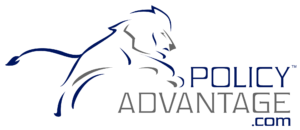Navigating Health Insurance with Professionals: How a Chartered Healthcare Consultant® (ChHC®), Registered Employee Benefits Consultant® (REBC®), and Registered Health Underwriter® (RHU®) Can Assist You
Introduction:
Health insurance planning is an essential aspect of managing personal and corporate finances. With the complexity and ever-changing landscape of the healthcare industry, individuals, families, small businesses, and corporations often find themselves seeking expert guidance. The American College of Financial Services, in collaboration with the National Association of Benefits and Insurance Professionals (NABIP), offers a range of professionals who are well-equipped to provide valuable assistance in this domain. In this blog post, we will explore three distinguished designations from The American College – Chartered Healthcare Consultant® (ChHC®), Registered Employee Benefits Consultant® (REBC®), and Registered Health Underwriter® (RHU®) – and how they can help individuals, families, small businesses, and corporations with their health insurance planning.
- Chartered Healthcare Consultant® (ChHC®): A Chartered Healthcare Consultant® (ChHC®) possesses specialized knowledge and expertise in healthcare and insurance planning. These professionals are skilled in analyzing individual or organizational needs and providing tailored health insurance solutions. Their comprehensive understanding of health insurance products, legislation, and healthcare delivery systems enables them to assist individuals, families, small businesses, and corporations in making informed decisions regarding coverage, cost management, and risk mitigation. Whether it’s choosing the right health insurance plan, understanding the nuances of healthcare reform, or optimizing benefits packages, a ChHC® can provide invaluable guidance throughout the entire process.
- Registered Employee Benefits Consultant® (REBC®): Registered Employee Benefits Consultant® (REBC®) professionals specialize in employee benefits planning, which encompasses health insurance as a critical component. These experts possess an in-depth understanding of the complexities of health insurance plans within the context of employer-sponsored benefits. By evaluating an organization’s specific needs, REBC® professionals can design and implement comprehensive benefits programs that align with the company’s goals, budget, and regulatory requirements. They can assist with plan design, cost containment strategies, compliance, employee education, and communication. REBC® professionals play a vital role in ensuring that small businesses and corporations provide competitive and well-rounded health insurance options to their employees.
- Registered Health Underwriter® (RHU®): A Registered Health Underwriter® (RHU®) is a professional equipped with specialized knowledge in health insurance planning and underwriting. RHU® professionals possess a deep understanding of health insurance policies, risk assessment, and claims management. They can guide individuals, families, small businesses, and corporations in selecting appropriate health insurance plans based on their unique requirements, risk tolerance, and budgetary considerations. Whether it’s navigating the intricacies of coverage options, assessing policy suitability, or addressing claims-related concerns, an RHU® can provide valuable insights and expertise to ensure optimal health insurance planning outcomes.
Conclusion:
Health insurance planning requires a thorough understanding of complex policies, regulatory frameworks, and evolving market dynamics. The American College of Financial Services, in partnership with the National Association of Benefits and Insurance Professionals (NABIP), offers a diverse range of professionals who hold prestigious designations such as Chartered Healthcare Consultant® (ChHC®), Registered Employee Benefits Consultant® (REBC®), and Registered Health Underwriter® (RHU®). These professionals possess the knowledge, skills, and experience to assist individuals, families, small businesses, and corporations in making informed decisions about their health insurance needs. By leveraging their expertise, individuals and organizations can navigate the intricacies of health insurance planning with confidence, ensuring the best possible coverage, cost management, and risk mitigation strategies.
